This policy sets out Step One’s commitment to provide guidance on how to respond and take action effectively, when an adult, in need of our care and support is experiencing or is at risk of abuse or neglect.
1. Introduction
1.1 This policy is based on the following underlying principles:
- Everyone has the right to live their life free from violence, fear, and abuse.
- All adults have the right to be protected from harm and exploitation.
- All adults have the right to independence which involves a degree of risk.
1.2 In support of the policy, all Step One employees, workers and volunteers (collectively known as colleagues) receive training to promote ongoing awareness and to ensure that best practice is understood and applied in pursuance of this policy’s objectives. The training also assists in securing the continuing relevance of this policy. We will take all reasonable steps to ensure the safety and wellbeing, of everyone, whilst on our premises and using our services.
2. Objectives
2.1 The safeguarding objectives of the organisation are as follows:
- To work in a preventative manner to protect adults from being abused.
- To respond sensitively and coherently to reported incidents of abuse or neglect in a consistent manner in accordance with this policy.
- To coordinate action and services to best protect and assist adults.
- To ensure the safety of adults by integrating strategies, policies, and services relevant to abuse within the framework of all relevant legislation.
- To promote an outcomes approach in safeguarding that works for people, resulting in the best experience possible by ensuring the principles of Safeguarding, as outlined in The Care Act 2014.
- To ensure that adults have a right to confidentiality. In so far as it is consistent with this right, colleagues should only seek to share information, to ensure the safety and wellbeing of those individuals.
3. Defining who is at risk
3.1 This is defined in the Care Act 2014 (Chapter 14) as an adult who:
a) has needs for care and support,
b) is experiencing, or is at risk of, abuse or neglect, and
c) as a result of those needs is unable to protect themself against the abuse or neglect or the risk of it.
4. What constitutes abuse?
4.1 Abuse and neglect can take many forms. Anyone can carry out abuse, including, for example, family members, friends, paid workers and professionals, volunteers, and strangers. Abuse includes:
- Physical abuse including assault, hitting, slapping, pushing, misuse of medication, restraint, or inappropriate physical sanctions.
- Psychological abuse including emotional abuse, threats of harm or abandonment,deprivation of contact, humiliation, blaming, controlling, intimidation, coercion, harassment, verbal abuse, cyber bullying, isolation or unreasonable and unjustified withdrawal of services or supportive networks.
- Sexual abuse including rape, indecent exposure, sexual harassment, inappropriate looking or touching, sexual teasing or innuendo, sexual photography, subjection to pornography or witnessing sexual acts, indecent exposure and sexual assault or sexual acts to which the adult has not consented or was pressured into consenting.
- Financial or material abuse including theft, fraud, internet scamming, coercion in relation to an adult’s financial affairs or arrangements, including in connection with wills, property, inheritance or financial transactions, or the misuse or misappropriation of property, possessions, or benefits.
- Neglect and acts of omission including ignoring medical, emotional, or physical care needs, failure to provide access to appropriate health, care and support or educational services, the withholding of the necessities of life, such as medication, adequate nutrition, and heating.
- Discriminatory abuse Including forms of harassment, slurs, or similar treatment; because of race, gender and gender identity, age, disability, sexual orientation or religion.
- Organisational abuse including neglect and poor care practice within an institution or specific care setting such as a hospital or care home, for example, or in relation to care provided in one’s own home. This may range from one off incidents to on-going ill-treatment. It can be through neglect or poor professional practice because of the structure, policies, processes, and practices within an organisation.
- Domestic violence including psychological, physical, sexual, financial, emotional abuse; alleged ‘honour’ based violence.
Modern slavery encompasses slavery, human trafficking, forced labour and their disposal to coerce, deceive and force individuals into a life of abuse, servitude, and inhumane treatment. - Self-neglect which covers a wide range of behaviour including neglecting to care for one’s personal hygiene, health or surroundings and includes behaviour such as hoarding.
- Mate crime is a form of crime in which a perpetrator befriends a vulnerable person with the intention of then exploiting the person financially, physically, or sexually.
4.2 Some instances of abuse will constitute a criminal offence. In this respect, adults in need of care and support are entitled to the protection of the law in the same way as any other member of the public..
5. Procedures
Safeguarding adults is everyone’s responsibility.
5.1 If abuse is witnessed, suspected, or disclosed, this should be reported directly to your Line Manager and must be reported to the local Safeguarding Adults Team (via the
Torbay and Devon Safeguarding Adults Partnership) within 1 working day. Concerns should be reported at Report your concern – Devon Safeguarding Adults Partnership and completed referral forms should be sent to the Step One Quality & Performance Inbox (quality@steponecharity.co.uk)
5.2 If your Line Manager is not available, the appropriate escalation route is:
- Designated Safeguarding Lead
- Governance & Assurance Manager
- Member of the Senior Leadership Team.
Advice will be given on the appropriate course of action to take, and you will remain responsible for reporting the alleged abuse to the local Safeguarding Adults Team. It is everyone’s responsibility to report suspected, witnessed, or disclosed abuse or neglect.
5.3 If you have a safeguarding concern for a person using our services, this must always be reported in line with the above. This will be the case even if you believe that another agency has already raised a safeguarding referral or is in the process of doing so.
5.4 Independent safeguarding advice can be sought from Step One’s Designated Safeguarding Lead. Their contact details can be found in section 9 below. The role of
the Designated Safeguarding Lead is detailed within Appendix 1.
5.5 If the alleged abuser is an employee, worker, volunteer or person on placement, they will be suspended immediately, pending investigation. Any allegations against colleagues must be escalated immediately to the Designated Safeguarding Lead who will liaise with HR. The Designated Safeguarding Lead will raise a safeguarding concern with the appropriate local authority where the alleged safeguarding incident happened using the Safeguarding Adult Board’s Persons in a Position Trust (PiPoT) policy as guidance.
5.6 If the alleged abuser is a visitor, they will be excluded from the organisation’s services pending investigation.
When a safeguarding incident is witnessed:
5.7 If anyone is in a violent or threatening situation and is in danger, call the police on 999. If a person is injured, call for an ambulance on 999.
5.8 Report the safeguarding incident to your Line Manager and the local Safeguarding Adults Team (here) within 1 working day and send the completed referral form to the Step One Quality & Performance inbox.
5.9 Where a safeguarding incident has been witnessed, you must also complete an internal incident reporting form in line with Step One’s Incident Management Policy and send to the Quality & Performance inbox.
When abuse or neglect is suspected:
5.10 Report suspicions to your Line Manager and the local Safeguarding Adults Team (here) within 1 working day and send the completed referral form to the Step One Quality & Performance inbox.
5.11 If you suspect that the Manager is involved in the abuse, contact the local Safeguarding Adults Team, and follow Step One Charity’s Raising Concerns Policy. Independent advice can also be sought from the Designated Safeguarding Lead.
When abuse or neglect is disclosed:
5.12 You must –
-
- Stay calm.
- Listen carefully.
- Explain that you must pass the allegation onto your Line Manager and the Safeguarding Adults Team. If the person is reluctant for an investigation to take place, this must be detailed within your safeguarding referral. A professional case discussion will still need to take place to protect and support the individual.
- Reassure the person they have done the right thing by telling you.
- Inform your Line Manager and complete the safeguarding referral (here) within 1 working day.
- Send a copy of the completed referral form to the Step One Quality & Performance inbox.
5.12 You must not –
-
-
- Appear shocked, disgusted, or angry.
- Press for more details.
- Make comments or judgments, other than concern.
- Stop the person while they are explaining what happened.
- Promise to keep it a secret.
- Pass the information to anyone other than the local Safeguarding Adults Team, their Line Manager and/or the colleague detailed within 5.2 above.
- Make any contact with the alleged abuser.
- Attempt to investigate or resolve the disclosure without following the requirements of this policy.
- Assume that somebody else will make the safeguarding referral.
-
5.13 If abuse is disclosed but not witnessed, an internal incident report is not required, but a safeguarding referral must still be completed and a copy sent to the Step One Quality & Performance Inbox.
6. Recording Information
6.1 It is essential that clear and accurate records be kept of all contacts and actions relating to cases of abuse. The records may need to be used to hold individuals or agencies to legal account and therefore should be complete and factual. It is important that no record breaches the person’s individual legal rights.
6.2 Safeguarding referral forms, which can be downloaded here, should contain as much relevant detail as possible to factually describe what happened, how it happened, and who was involved. A copy of the completed form should be sent to the Step One Quality & Performance inbox so that the referral can be recorded on Step One’s internal Safeguarding Log.
6.3 If an incident form is required (in cases where a safeguarding incident has been witnessed), this should also contain as much relevant detail as possible. Ensure the completed form is submitted to the Quality & Performance inbox in line with Step One’s Incident Management Policy.
7. Confidentiality & Information Sharing
7.1 Vulnerable adult enquiries, investigations and conferences can only be successful if professional colleagues share and exchange all relevant information. That information must be always treated as confidential, and colleagues will be bound by the ethical and statutory codes that cover confidentiality and data protection.
7.2 Disclosure of confidential personal information without the consent of the person providing it, may take place under circumstances, which may be capable of justification.
7.3 Problems around the disclosure of information can be avoided if the consent of the individual is obtained, preferably in writing, so long as they have mental capacity.
7.4 Disclosure may be necessary in the public interest when a failure to disclose information may expose another to risk of death or serious harm.
8. Legislative & Best Practice Frameworks
- The Care Act 2014
- Domestic Abuse Act 2021
- Mental Capacity (Amendment) Act 2019
- Modern Slavery Act 2015
- Serious Crime Act 2015
- Equality Act 2010
- Health and Social Care Act 2008
- Mental Capacity Act 2005
- Female Genital Mutilation Act 2003
- Sexual Offences Act 2003
9. Key Contacts
Designated Safeguarding Lead (DSL) – Ed Foreman
Email: edward.foreman@steponecharity.co.uk
Tel: 07713 201031
Torbay and Devon Safeguarding Adults Partnership –
Reporting: Report your concern – Devon Safeguarding Adults Partnership
Email: safeguardingadultsboardsecure-mailbox@devon.gov.uk

